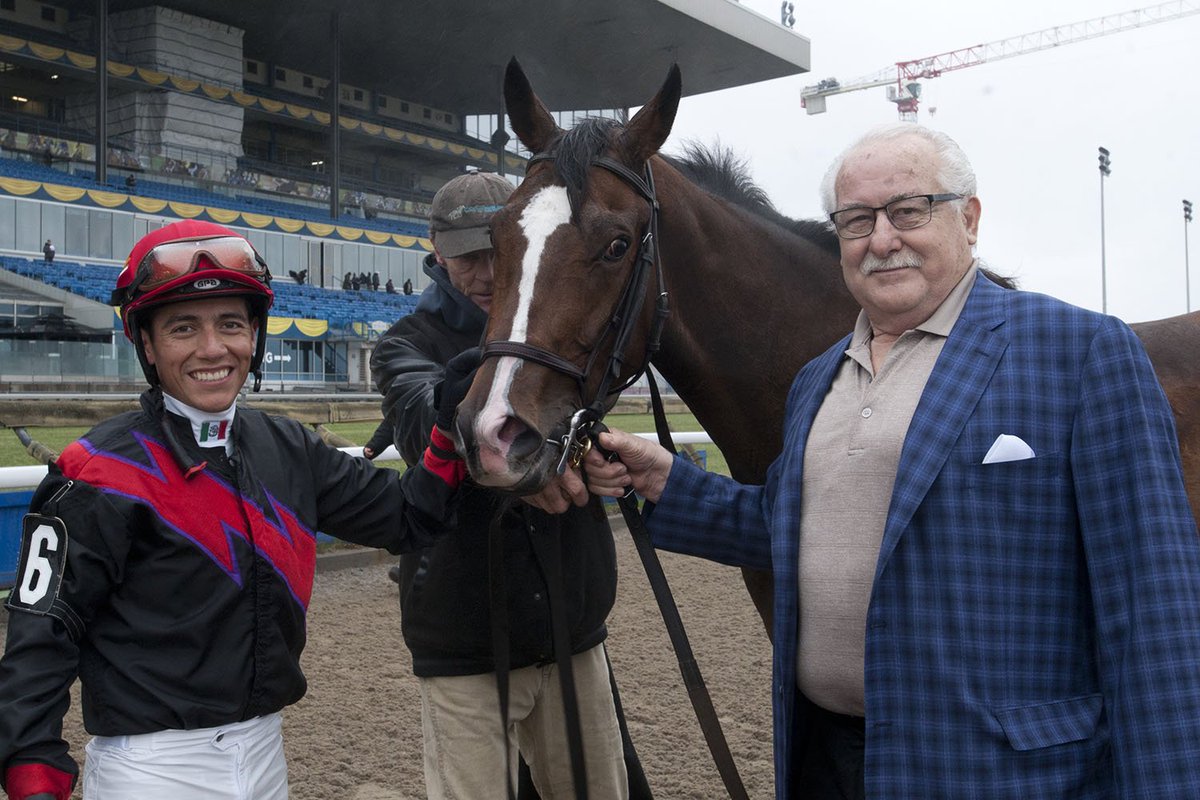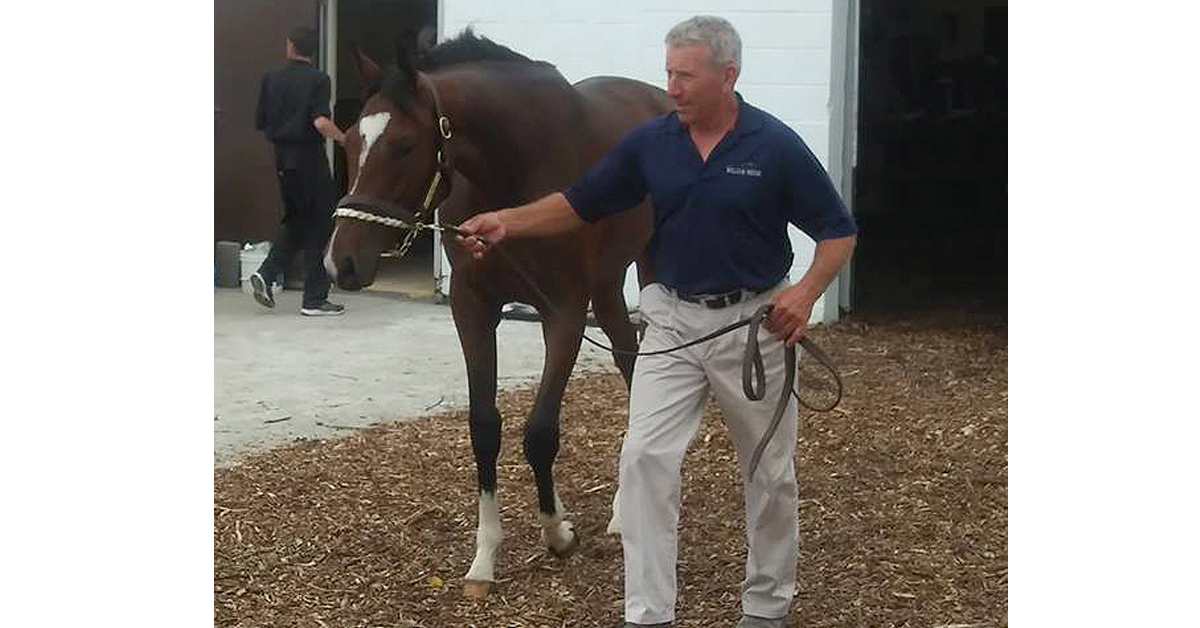John Burness is driving his horse van to Ocala to pick up some of his horses and take them home to his Colebrook farms in Uxbridge. Burness feels safe in his truck, equipped with gloves, mask and “every kind of disinfectant in the world that my wife bought.”
“We’ve had to change things around of course,” said Burness about his staff’s response to the strict measures in combating the spread of COVID-19. “When we have people come with mares to be bred, they don’t come into the breeding shed anymore. They have to stay in their vehicles. The mare is bred and then she leaves. We have no contact with anyone or anything outside our farm.”
Burness has six advertised stallions at Colebrook plus mares, foals and horses of racing age. It is one of the biggest Thoroughbred operations in the country.
“We have made sure our staff go straight home but most of them live right on the facility so that works well.”
In his travels through the U.S., Burness talks about a very different mindset with regards to the virus. “I see a very different way that people are acting [in the U.S.]. I go through New York and Pennsylvania and it’s a totally different atmosphere. The mentality down here is that [President Trump] has people convinced it’s all bulls**t, it’s going to pass, we’ve got to get back to work.
“I went to the border and the U.S. border person was not even wearing gloves. No mask. Not one guy at the border was wearing gloves.”
Burness has already pulled his few runners out of Mahoning Valley in Ohio, which suspended racing.
Burness self-isolates in an apartment at his farm between the couple of trips he has made by himself in his horse truck. “I don’t interact with anybody where I go to get my horses. I feel safe in my truck.”

JOHN BURNESS has weathered many a storm in Ontario horse racing. His stallion and breeding business continues on in one of the toughest battles he has ever seen. – Woodbine photo
“We’re still breeding, but with precautions,” said John Carey, who stands Old Forester, Souper Speedy and Amis Gizmo at his T.C. Westmeath Stud in Shelburne. “I got an email from Kentucky on how farms there are handling the virus so we’re taking every precaution and following similar procedures.”
Carey said when mares come to his farm to be bred he makes sure van drivers stay in the truck and keep human interaction during the breeding process to a minimum.
Not easy for the fun-loving Carey, who enjoys people as much as his horses.
“We have to treat everyone like criminals,” Carey says with a half laugh. “It’s sad because I’m a friendly sort of a guy but you can’t do that anymore.”
Carey has welcomed 15 foals at his farm thus far in 2020 and also has his own shares in a couple of horses of racing age.
One of those is Old Blue Cliff, a large full brother to Horse of the Year Pink Lloyd. “He is here, about to go out to the paddock,” said Carey about the grey 2-year-old. “He was at the track briefly but he has come back. I am going to geld him and see how he goes up here but he’s a big horse and he will need a bit of time.”
Breeders Guidelines Notes from Thoroughbred Breeders Australia


